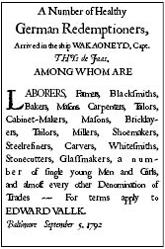River Avon, Bristol
November 1783
ELISABETH LONGED TO RETURN HOME, and it had been only days since they’d left—two days, nine hours, and heaven knows how many minutes, every one of them biting cold. She stood alongside the trunks, her foot tapping a quick rhythm beneath her skirts as she closed her eyes, briefly shutting out the chaos of the quay. Faith, now it was to be months, months, before she would know if Rhee, her best friend, had managed to snare William’s attention at church on Sunday. They’d had a foolproof plan worked out; it couldn’t have failed. Well, unless he—
“Elisabeth, Elisabeth!”
Her father, finally. Given his grim expression, it wasn’t the first time he’d called her, but in the midst of this mayhem, how could he have expected she’d hear him? Her heart softened as she looked at him, and she pushed back the hood of her cloak and smiled.
He looked so handsome. His fair hair was carefully arranged beneath a stiff new hat, for Papa always seemed to have a new hat, and this one hid his thinning hairline quite nicely. And of course that was a must, given she’d finally convinced him to forgo wearing a wig. The cut of his coat flattered his tall, slim frame, and the garment hung without a hint of strain about his shoulders. His shoes were spotless, their silver buckles gleaming, and the ornate black clocked stockings on display beneath his coat stretched taut to his breeches. Why, he was practically in full dress to board a ship, for mercy’s sake.
Thin lips pressed tightly together, he clutched a fistful of papers in one hand while gesturing to her impatiently with the other. “We’re to board, Elisabeth. You must pay close mind to me. You wouldn’t want to get lost in this rabble now, would you?”
“I’m sorry, Papa. No, of course I wouldn’t.”
He grabbed her elbow, holding her tight. His stride was purposeful and sure, and others, less sure, moved out of his way as he pulled her toward the longboat.
“What of our luggage, Papa?” she asked, looking over her shoulder at the pile they had abandoned.
“It’s taken care of. You needn’t concern yourself. Put your hood up. The wind is rising; I can’t have you taking ill.”
“Mr. Hale!” one of the seamen called out, motioning them forward. Her father raised his handful of papers to acknowledge him.
She pulled the hood of her cloak over her head and turned again, feeling the scrutiny of someone’s eyes. Two men, members of the crew, she hoped, were loading their trunks onto a cart. Neither were paying her the least mind. Her father tugged, and she followed him onto the wharf. The man who had called out reached for her, his large, bony hands guiding her carefully into the boat that would transport them to the Industry.
She wished she had thought to grab a bit of Bristol sand. She may never return; it would have been nice to have a small piece of some part of Britain. She looked back at the city, saying a silent goodbye.
There! That man—the one slumped against the side of that warehouse, his thumbs hooked in the waist of his breeches—he was the one staring.
No, not quite a man; he probably wasn’t much older than she. But he was as big or bigger than most men. Even slouched, she could see that he was tall, his shoulders broad, his chest wide. He didn’t glance away when he saw her turn; he met her gaze directly.
A lock of dark hair escaped his cap and hung low over his brow. If his meager possessions were anything to judge by, he was likely one of those her father had named ‘rabble,’ one of those traveling in steerage. Or perhaps he was merely boarding one of the ships sailing to Ireland, and didn’t need to carry much. She was too far to make out the detail of his features, but his bearing intrigued her. He conveyed confidence; he certainly hadn’t lowered his eyes when she’d noticed him watching her. Not arrogance. Not a challenge. Merely curiosity?
She felt an odd pressure beneath her stays, and her hand rose without thought to push back at the sensation. Her father pulled on her elbow to sit, and she fell back against him as the crew rowed the boat away from the dock, her eyes still on the boy as he watched her.
DAVID PACED THE QUAY, an eye out for his uncle. The innkeeper had handed him Uncle John’s note first thing that morning, relaying he’d had to take care of some last minute details, that David was to meet him on the quay and board the Industry when he could. The man likely thought he was doing him a favor, letting him sleep, but he could have done without it. He wasn’t keen on doing any of this alone.
Besides, if he were going to leave him alone, the night before would’ve been the time for it. He wouldn’t have minded then, not with the prospect of whiling away some time with the barmaid at the inn. He smiled, her image holding his worry at bay for the moment.
Betsy, her name had been, just here from Bath, agreeable lass. Pretty, blonde, and plump; she had laughed at everything he’d thought to say as she lingered over presenting their meals, hinting she’d still be about after the kitchen closed later that night.
Which hadn’t been as pleasing a prospect to Uncle John as it had been to him.
David and his uncle, the Reverend John Wilson, had been traveling for close to three weeks now: on foot, by water, and by coach. His uncle had had the worst of it, traveling all the way from Ireland, stopping in Scotland to collect him. And though Ma’s lectures had always been delivered by Da in the past, she’d apparently taken advantage of that brief time to pass the obligation on to her brother. And Uncle John had taken the duty to heart many a time over the last three weeks.
And so David had had his hands full with a far less pleasing prospect—steering the conversation from the barmaid and diverting his uncle’s attention.
Sailors called down from a nearby ship as they repaired its rigging, mocking him, he supposed; he couldn’t make out the words, but he knew well the tone. He ignored them. The early morning fog had lifted some and he had a clear view of the Industry now. The brig had a tidy look to it; two masts, an uncluttered deck. Tidy’s good; someone’s minding things then.
Hands in his pockets, he rolled up off the balls of his feet as he studied the ship. His last day in Britain . . . for how long? Years? A lifetime? He added it to his round of ‘lasts.’ His last Sunday spent with his family in kirk. Ma’s last home-cooked meal with all his favorites. One last tussle with Cousin James . . . tucking his younger brothers in that last night. Then there was that last lecture from Da as they fished a lazy morning away. But Da could write as well as talk, so no, that likely wasn’t the last. And that final hour spent with Alice Ennis. He grinned as he thought of her beckoning him into her da’s barn. Now that had been a sweet leave-taking, for sure.
As the quay filled with more travelers, he moved to stand alongside a warehouse, keeping in view of the ship, watching as the crew directed the loading of the cargo. It looked as if they’d be carting a load of glass. His uncle had speculated as much when they had passed three different glass factories in their wanderings yesterday. He wished the man would come; it had to be getting close to time to board. What in God’s name could be keeping him?
Then he had seen her.
She was standing alone next to a large heap of baggage, framed by the passel of gulls screaming and diving at the leavings of the fish trade on the sand behind her. Well dressed, her dark cloak was tied with bright blue ribbons, a color he thought might match her eyes; though why that thought should occur to him, he didn’t know. Bonny lass, a slight smile played around the corners of her lips, alternating with a grimace of impatience as she looked about. She seemed out of place, standing there alone, though he thought her family must be near, given the number of trunks she guarded. He wished his were, but they’d had a hard enough time scraping money together for his passage, much less the others.
He watched her turn as a man called out, and his mouth curved into a grin of anticipation. Elisabeth, the man had called her, was boarding the transport for the cabin passengers of the brig Industry.
She turned as she boarded, sensing his scrutiny, meeting his eyes. He thought briefly of lowering his; he’d been taught better than to stare. But he didn’t.
And then he couldn’t. He felt her gaze as it shot straight down to his boots, then meandered back up to scurry to and fro across his back and his shoulders, before it darted down to his fingertips. He flexed his fingers, staring at her, watching the longboat as it shoved off.
Had he just imagined that?
He narrowed his eyes, puzzled. He must have.
The clouds began to disperse, the strengthening breeze chasing them about. He grabbed the bags and joined in the push to the loading queue, the worry leaving him as he moved forward, the excitement growing as he listened to the chorus of voices around him.
A man just ahead was struggling to keep three boys within arm’s reach. Not brothers, they were nothing alike, and they addressed the man as “Mister,” not “Da.” The man was of middling age, his kindly round face surrounded by a full head of sandy hair beneath his tricorn hat, hair he wore loose and wild about his shoulders. Mayhap he was their guardian.
The tallest boy, the one they called Liam, was about his age. He grinned when he caught David’s eye, and pointed down the river.
“How long do you suppose before we get to Philly? Sean here says a fortnight,” Liam said, tousling the youngest boy’s curly red hair. The boy grinned at Liam, his round, freckled face lighting up at the touch. “Rob says it’ll be three to four times that. There’s a ha’penny banking on it, for them tha’s closest.”
“For the one closest, Liam. Mind your grammar,” the man said absentmindedly, his eyes on the untidy heap of papers he held in his hands.
“Aye, Mr. Oliver,” Liam said obediently, winking at David. “Well, what d’ye say, mate?”
“It’ll be at least eight weeks, I’m thinking, being as it’s winter. Mayhap longer, if we hit more than a bit of weather,” David said. “And ye, your wager?”
“Nay, Canna risk what I dinna have, and I dinna have a bawbee to spare. But I dinna mind risking what these two have,” Liam said, with a slap on the back of each of his companions.
The one named Rob rolled his eyes and turned toward the water. David noticed he had a pronounced limp in his walk, evident each time they took a few steps forward. He appeared to be the oldest of all three, sturdy and serious looking.
“Where’s your family, young man?” Mr. Oliver asked, peering at him over his spectacles, seeming to notice him for the first time. “You best stay close to them in this crowd if you don’t want to risk crossing on your own.”
“I’m not with my family, sir. Well, that is, jus’ my uncle. He’s to meet me here, Reverend Wilson he is. He had some last minute things he needed to take care of. I’m to board so as he doesna have to waste time finding me. I have all my tickets and letters,” David said, patting his jacket with confidence.
“Aye, well, he can follow us, canna he, Mr. O, jus’ in case tha’ hawker up there gives him trouble?” Liam said, canting his head toward the man incessantly shouting, “All aboard, have your tickets ready or step out of the way.”
“I suppose,” Mr. Oliver said, his gaze sweeping the crowd for anyone resembling a reverend searching for a boy, clearly not relishing the prospect of another charge.
David also scanned the crowd. It was easy enough to spot his uncle, his height being the one thing they shared, though of course his collar set him off as well. The resemblance ended there, his uncle being fair of skin and hair, his features rounded and pleasant, always friendly and approachable, reminiscent of his mother. David’s coloring was dark; his own features with more of an edge to them, at times appearing brooding and unapproachable, reminiscent of his father.
What was he going to do if the man didn’t show by the time he reached the transport?
With an effort he brought his attention back to Liam. It was hard not to like the lad straight away; he was alive with an excitement that was contagious. He was almost as tall as he himself was, but of slighter build, with jet black hair that brought to mind the tales of the sleek coats of the silkies off Orkney. His dark blue eyes were bright with intelligence .
“Rob and I are going to help Mr. Oliver set up a school in the states. As soon as he heard the war was done he jus’ upped and ‘cided to leave and start o’er, didna ye, Mr. O? Ye can do just about anything you want in Philly wi’ an education, says Mr. O. Sean here will be goin’ on toward Pittsburg, to meet up with his brother and help him on his farm, maybe end up with a farm o’ his own. Land’s free for the takin’, I hear, if ye can work it. Are ye aimin’ to stay on in Philly?” He paused for a breath and introduced himself.
“Liam Brock,” he said.
“David Graham,” David responded. “I’m to apprentice to printers Hall and Sellers in Philadelphia. Mr. Hall’s da knew my kin at the University in Edinburgh.” As they were pushed forward he turned to scan the crowd again. Finally! He closed his eyes in a quick prayer of thanks, then grinned broadly.
“Uncle John, Uncle John, o’er here!” he called, waving his hand high above his head.
John Wilson hurried forward with a small trunk, his brow furrowed with concern.
“There you are, David. I was worried, what with the sail being so close. If I didn’t see you, I was in a quandary whether to board or not. I should have arranged it better to assure myself of your whereabouts.” He paused, setting the trunk down as he hunted for his handkerchief. “What was I going to tell your mother if I ended up in Philadelphia and left you here, or if I should stay and you ended up in Philadelphia on your own?” He took off his hat and wiped his hairline, his blond hair dark with perspiration born of worry.
“Dinna fash, Uncle. I did what ye told me and here I am. Did ye find what ye were looking for, did ye—”
Noticing David’s curious companions, Wilson set his hat back atop his head. “Aye, are ye planning to make the introductions, David?” he asked, interrupting his queries.
“Oh, aye, of course,” he said. He introduced Mr. Oliver and the others.
“Well, ain’t that cozy. This ain’t a tea party; are ye boarding or not?” They had reached the front of the queue. “Plenty behind you want yer space if not, so make it quick. Where’s your docs? That’s not them. Yer not getting far with yer lodging receipt. Stop wasting these good people’s time; there’s a windward tide to catch, man.”
Mr. Oliver continued to fumble through his paperwork, dropping several pieces in his search for the tickets. Liam reached over and quickly plucked the tickets from amid the scramble of documents, his foot moving atop the fallen papers just before the breeze could take them.
“Here they are, ye old sap, and dinna forget ye kept us waitin’ these last three days for the sail.”
“Liam, tis better to return discourtesy with courtesy,” Mr. Oliver said quietly.
“Right, Mr. O, sorry. Sometimes I get me back up and forget.” He bent and retrieved the papers beneath his foot, then took the balance of documents from Oliver, carefully placing them in the case at the man’s feet. He nodded toward the waiting barge. “Let’s board then, aye?”
David passed the ticket he’d been safeguarding to his uncle, who handed it, along with his own, to the ship’s employee. The man motioned them along impatiently, “get on with ya man, keep it moving.”


